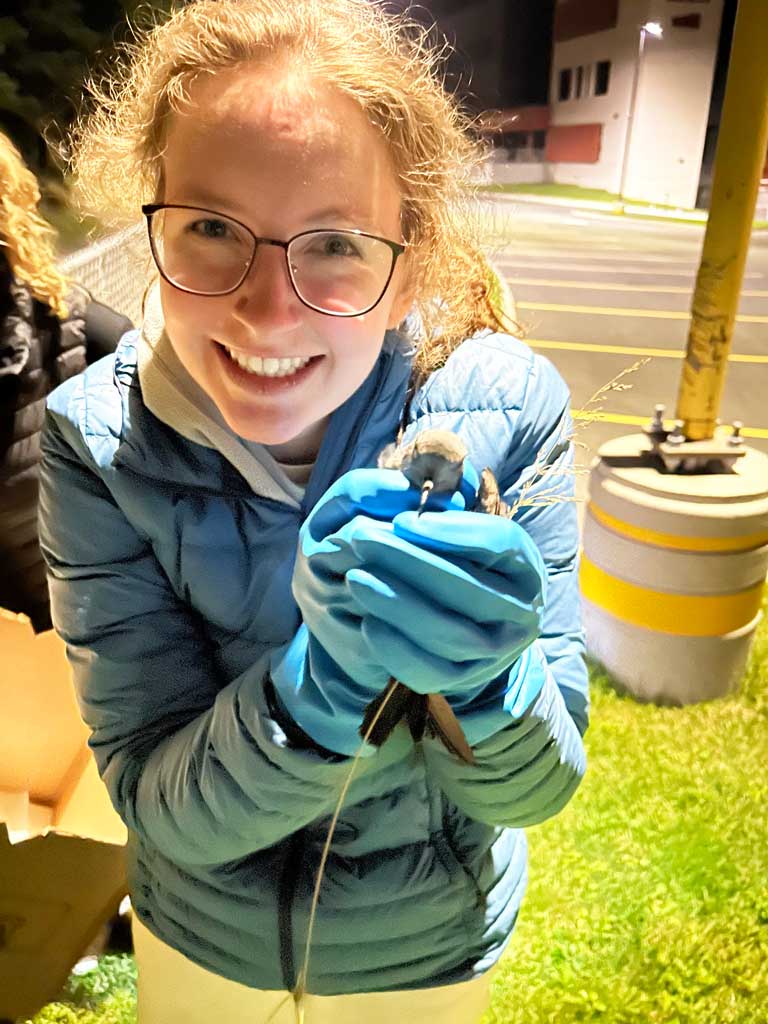High schooler saving petrels dazzled by the bright lights of CBS

By Mark Squibb
You may not know it, but Baccalieu Island off the coast of Conception Bay North is host to the world’s largest breeding colony of leach storm petrels — some four million birds nest on the island annually.
You also may not know that many of those petrels, when migrating south in the dark of night, become disoriented by the lights of Conception Bay South and Holyrood, crash land, and become stranded.
Chloe Regular, 17, of Paradise is spearheading a campaign to raise awareness of the birds’ plight.
“I think it’s our responsibility to get out there and help them, especially because the great majority of the population nest off Newfoundland’s coast,” said Regular, noting the birds are an ‘At Risk’ species, one classification away from being ‘Endangered.’
Regular was afforded an opportunity to observe petrels in their natural habitat last summer while on a Women in Science and Engineering (WISE) internship studying puffins on the Witless Bay Ecological Reserve.
She can recall seeing dozens of petrels flying overhead and chirping to one another.
Regular, who has always had an interest in wildlife conservation, said seeing the birds in their natural habitat helped bring home the reality of their plight, and she has since, along with other volunteers, undertaken many late night and early morning rescue missions.
Now she wants to raise awareness so that others can lend a hand in setting the birds back on course. To that end, Regular will be distributing information posters in Conception Bay South and Holyrood in the coming weeks so folks will know how to recognise a petrel and what to do if you come across one.
“They’re small, grey birds, a little smaller than a robin, and they are very timid, and not aggressive,” said Regular. “They are way more afraid of you than you could be of them. They won’t bite or scratch…. They’re marine birds, so they’re more well equipped to living on the ocean, compared to living on land. So, once they land, they can’t actually take off and take flight unless there’s an elevation they can jump off.”
Regular said if you do find a stranded petrel, don a pair of gloves and gently lift it into a carboard box. You can line the box with paper towel so the bird doesn’t slide around. Make sure the box is not airtight and bring it to an organization such as Rock Wildlife Rescue or the Canadian Parks and Wilderness Society (CPWAS.)
Many stranded petrels, if not rescued, are struck by cars or hunted by predators, and are likely to be found in brightly lit areas or hiding in tall grass.
The Committee on the Status of Endangered Wildlife in Canada (COSEWIC) estimates that the petrel population has declined by 54 per cent over the past 44 years, and that the rate of decline is increasing.

